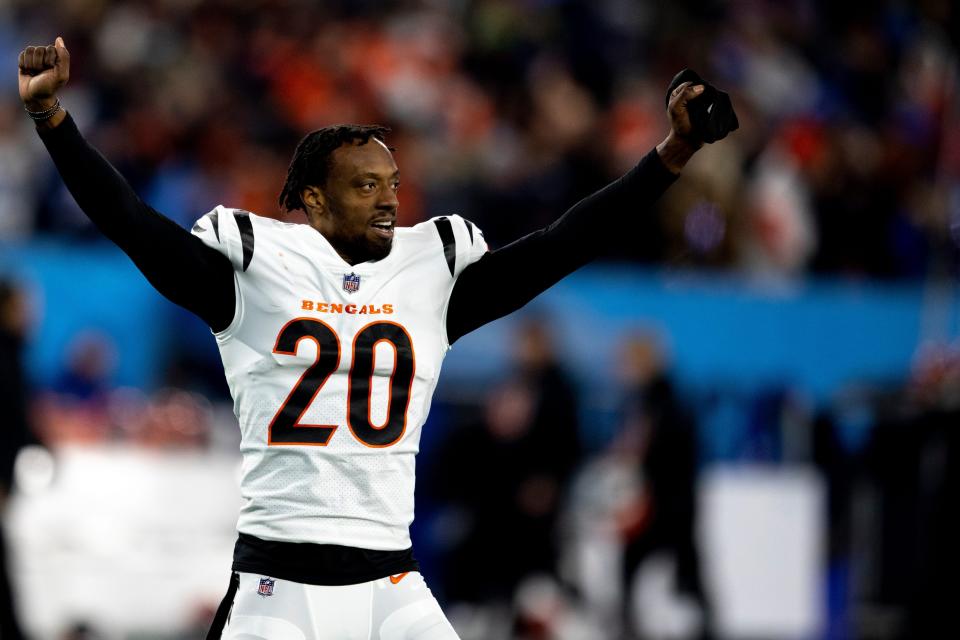Taunting emphasis this season means Bengals, Rams better behave in Super Bowl | Opinion
LOS ANGELES – They’ve been warned, like all season: Don’t rub it in.
Getting the last word, laugh or in-your-face gesture is not worth it. Especially with the NFL’s point of emphasis on taunting this season poised for another test with the high stakes of Super Bowl 56.
Add taunting to the list of potential X-factors that could influence the result when the Los Angeles Rams and Cincinnati Bengals tangle at So-Fi Stadium.
“It could be a factor if you allow it to be,” Rams all-pro cornerback Jalen Ramsey told USA TODAY Sports. “But not really. You’ve got to know how they’re officiating it and you’ve got to make sure you don’t do anything to hurt your team.”
Ramsey is one of the handful of players in Super Bowl 56 who was flagged for taunting during the regular season, although there was much debate about the merits of his penalty.
NFL NEWSLETTER: Sign up now for exclusive content sent to your inbox
ALL-IN: Will Rams' go-for-broke Super Bowl formula leave them bankrupt?
More recently, Bengals cornerback Eli Apple drew a flag and was fined $5,556 for his actions during the divisional playoff win at Tennessee – Apple stood over Ryan Tannehill and talked trash after the quarterback threw an interception. This is the same Apple who, during his stint with the New Orleans Saints, taunted Rams coach Sean McVay after a defensive stop during the 2019 NFC title game and wasn’t penalized.

It’s logical to think that the Super Bowl officiating crew headed by referee Ron Torbert will be keeping close watch.
Bengals safety Vonn Bell also has some history. In September, Bell was fined $10,300 for taunting Chicago Bears quarterback Andy Dalton. And in Week 14, Bell was flagged (but not fined) for a taunting penalty on third down that extended a drive against the San Francisco 49ers that ultimately led to a touchdown. Bell’s transgression came when he pointed at a 49ers player after an incompletion.
Of course, there’s gray area. Cincinnati’s star rookie receiver, Ja’Marr Chase, was also flagged (but not fined) for a Week 14 incident against the Baltimore Ravens when he spun the football on the turf after making a catch. Perhaps a warning would have sufficed, given how players often point like officials signaling a first down on so many occasions without being penalized.
Nonetheless, the point of emphasis was given life as the NFL’s competition committee – at the urging of its coaches’ subcommittee – moved to underscore sportsmanship and reduce the prospects of retaliation that can potentially spark mayhem.
Strikingly, an incident during last year’s Super Bowl fueled momentum for the emphasis after Tampa Bay Buccaneers safety Antoine Winfield Jr. was penalized and later fined $7,815 for flashing two fingers as the “peace sign” in the face of Kansas City Chiefs receiver Tyreek Hill after a pass breakup late in the 31-9 route.
After the game, Winfield admitted that the taunting was a payback measure. During Kansas City’s regular-season win at Tampa in 2020, Hill burned the Bucs' D for more than 200 yards receiving and three TDs – and gave Winfield the “peace sign” in rubbing it in.
“It’s something I had to do,” Winfield said after Super Bowl LV. “Hill, when we played them earlier, he went off on us. He backflipped in front of my face and gave me the peace sign. So it was only right that I gave the peace sign right back to him.
“At this moment, it felt amazing to be able to do that. I’m not even going to lie.”
Hoping to avoid such repeat scenarios, the NFL has cracked down consistently – even though it appears that, like many calls, some officials demonstrate less tolerance than others when making the judgment call on taunting.
The numbers show the emphasis: During the 2021 regular season, 61 unsportsmanlike conduct penalties for taunting were called, league-wide – a significant rise from the 12 taunting penalties called during the 2020 campaign. There were three taunting calls during the postseason in both 2020 and 2021. Then again, the 2021 season is not over yet.
McVay, like Bengals counterpart Zac Taylor, knows. And you can believe that McVay, a member of the aforementioned coaches’ subcommittee, has issued the appropriate warning to his players.
“It’s a huge point of emphasis,” McVay said. “We talk about how it’s being officiated and don’t do anything that will hurt the team. And I trust our guys will be able to do that.”
This article originally appeared on USA TODAY: Super Bowl 2022: Taunting emphasis means Bengals, Rams better behave

